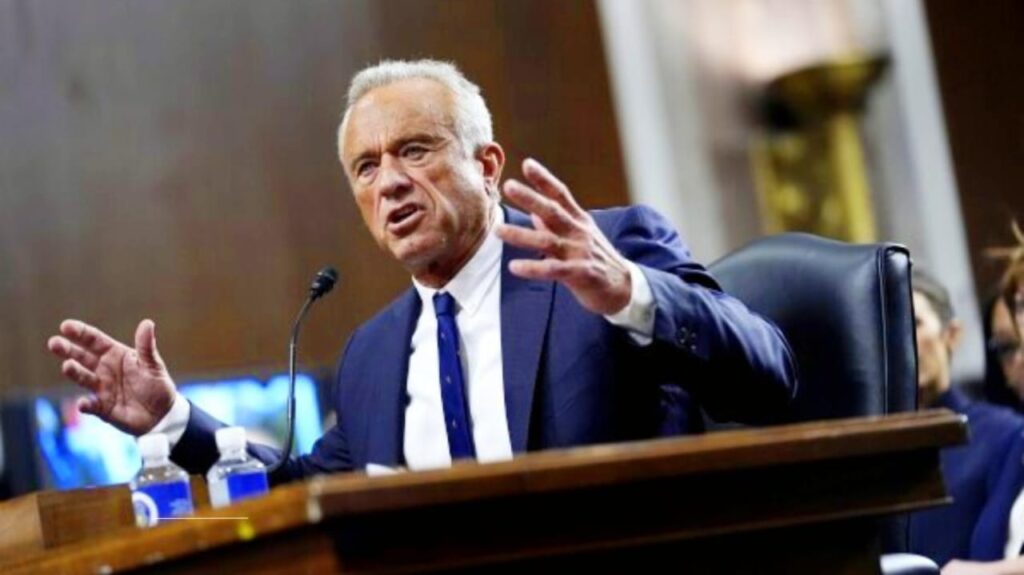
Robert F. Kennedy Jr. has long been a controversial figure in public health discussions, particularly due to his past leadership in vaccine skepticism movements. His recent Senate testimony has put his views under scrutiny once again, igniting debates on vaccine policies and medical freedom. While Kennedy attempts to distance himself from past affiliations, the impact of his previous advocacy remains a central focus for lawmakers and the public.
Kennedy, known for his involvement in the nonprofit Children’s Health Defense, has frequently voiced concerns about vaccine safety and government transparency in medical decisions. During his confirmation hearing before the Senate Finance Committee, his testimony was met with both support and skepticism. His call for “radical transparency” in the health department was seen by his supporters as a step toward ensuring accountability in public health policies.
Mary Holland, CEO of Children’s Health Defense, expressed satisfaction with Kennedy’s testimony, viewing it as a validation of concerns raised by vaccine safety advocates. She emphasized the need for further scrutiny of routine immunizations, suggesting that additional research is required to ensure vaccine safety and efficacy. According to Holland, Kennedy’s approach aligns with the organization’s long-standing goal of advocating for parental choice in medical decisions.
However, Kennedy faced sharp criticism from Democratic senators, who accused him of fueling misinformation. Some lawmakers highlighted his past inflammatory statements on vaccines, questioning his commitment to public health. In response, Kennedy reiterated his stance that he is not anti-vaccine but rather pro-safety, advocating for informed consent and rigorous scientific evaluations of vaccines before they are mandated.
One of the most contentious moments of the hearing came when Senator Bernie Sanders confronted Kennedy about merchandise sold by Children’s Health Defense featuring slogans like “Unvaxxed, Unafraid” and “No Vax, No Problem.” Holland responded to the criticism with humor, noting that sales of the items had surged following the hearing. She insisted that the message behind these slogans aligned with the principle of bodily autonomy, emphasizing the right of parents to make medical decisions for their children without coercion.
Kennedy has attempted to moderate his stance by expressing support for some vaccines, including polio and measles immunizations. However, his critics argue that his close ties to the anti-vaccine movement raise concerns about how he would shape public health policies if appointed to a leadership role. The authority of the Health and Human Services (HHS) secretary extends to vaccine recommendations and regulatory policies, making his stance particularly significant.
Holland suggested that while Kennedy might not immediately alter childhood vaccination guidelines, his leadership could lead to a reassessment of long-standing immunization policies. She advocated for a comprehensive review of vaccines, claiming that such an evaluation would reveal potential risks that have been overlooked. The medical consensus, however, maintains that vaccines are a critical tool in preventing infectious diseases and that their benefits far outweigh potential risks.
The broader implications of Kennedy’s testimony extend beyond his personal views. His presence in the political sphere has coincided with a growing movement questioning mainstream public health narratives. The skepticism surrounding vaccines has been fueled by declining trust in institutions, particularly in the wake of the COVID-19 pandemic. While public health experts warn against the dangers of vaccine hesitancy, advocates for medical freedom continue to push for increased autonomy in health care decisions.
Holland’s remarks further amplified this debate, as she openly questioned the necessity of childhood vaccines for diseases such as measles, mumps, and rubella. She argued that contracting these illnesses in childhood could strengthen natural immunity, a claim that contradicts extensive medical research. Public health officials have consistently emphasized that vaccines provide a safe and effective means of protection, preventing severe complications associated with these diseases.
Despite Kennedy’s efforts to clarify his position, his association with figures who challenge vaccine mandates remains a focal point. His advocacy for personal choice resonates with individuals who believe medical decisions should be free from government mandates. At the same time, the medical community stresses the importance of herd immunity and widespread vaccination to protect vulnerable populations.
The controversy surrounding Kennedy highlights the broader struggle between public health initiatives and individual rights. While vaccine mandates have historically played a crucial role in eradicating diseases, the growing influence of vaccine skeptics presents challenges for health officials seeking to maintain high immunization rates.
As Kennedy continues his political journey, the impact of his past activism on vaccine policies remains a subject of intense debate. Whether his call for transparency will lead to constructive discussions or further polarization remains to be seen. What is clear, however, is that his testimony has reignited conversations on the delicate balance between public health safety and personal medical freedom.
